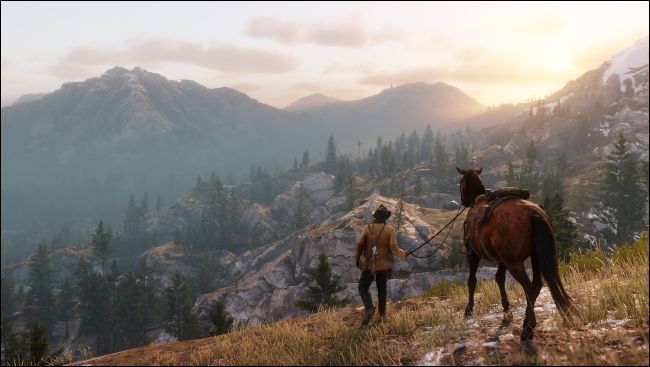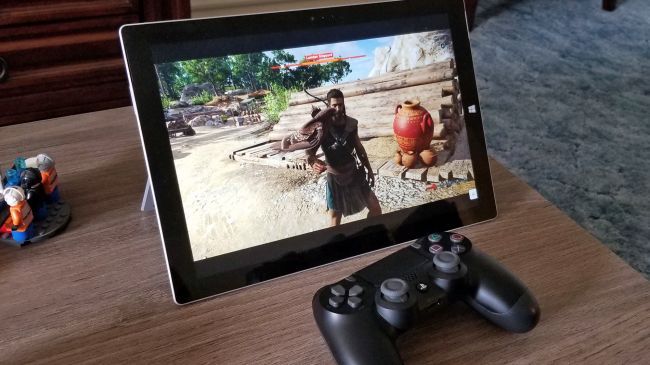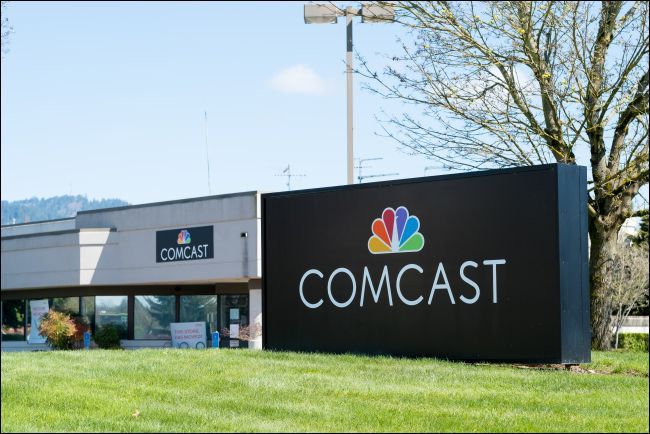Quick Links
Fallout 76's latest patch is over 47 GB in size. From video games to 4K streaming video, everything online keeps getting bigger. But Comcast's 1 TB data cap isn't changing, and some smaller Internet service providers are even worse.
100 GB Downloads for Modern Games
Modern console and PC games are huge! Sure, 47 GB for a single patch is a lot of space, but that's just the tip of the iceberg.
Red Dead Redemption 2 on Xbox One requires an 88.57 GB download. The PC version of Middle-earth: Shadow of War is 97.7 GB. Final Fantasy XV: Windows Edition requires a 75 GB download, and that's without the 4K texture pack. These big games often get big patches, too.
Modern games are nearing 100 GB in download size. With a 1 TB (1000 GB) bandwidth cap, that's roughly ten big video games a month assuming you purchase and download them digitally---and that's assuming you do nothing else with your connection.
7 GB Per Hour for 4K Streaming
Netflix says its 4K streaming use about 7 GB per hour, per device. Standard high-quality 1080p streaming is up to 3 GB per hour.
For 4K streaming, that's nearly 143 hours per month. That sounds like a lot. But, assuming a 30-day month, that's under 5 hours of streaming video per day. That may still be enough---but that's assuming you're a single person who doesn't do anything else with your Internet connection.
If we're moving towards digital streaming and 4K, those 1 TB bandwidth caps just aren't going to cut it. 8K is looming on the horizon, and it will take even more bandwidth.
11 GB Per Hour for Streaming Video Games
Streaming video games have a lot of potential. Imagine being able to play a demanding game on any device you have lying around without the heat, battery life, or performance problems.
Google's Project Stream beta works very well, but it requires a connection with minimum speed of 25 Mbps to function. At a sustained 25 Mbps, that's 11.25 GB of data transferred per hour.
That's about 89 hours of game streaming before you hit the bandwidth cap. In other words, it's less than 3 hours per day, assuming a 30-day month. Once again, that's assuming you're the only person using the connection, and all you ever do is stream games.
1 TB+ Per Month From a Smarthome Camera
Some smarthome devices can use a lot of bandwidth, too. This is particularly true for Wi-Fi cameras.
For example, let's say you have a Nest Cam with a Nest Aware subscription. Your camera is automatically uploading a video stream to Nest's servers, 24/7. At a high-quality setting, Nest says its maximum bandwidth is 4 Mbps.
That's 43.2 GB per day. Assuming a 30 day month, you've gone over your 1 TB bandwidth cap and uploaded nearly 1300 GB of data just from a single security camera.
But sure, you could turn down the quality setting. Let's say you go all the way down to Low, which ends up being a maximum of 0.8 Mbps. That's over 250 GB per month---more than a quarter of your bandwidth cap. And it's all from uploading low-quality video from one camera and doing nothing else.
Data Caps Are Holding Technology Back
Video games, online videos, and everything else is getting bigger and higher-resolution. Devices are using more and more data--- look at Internet-connected cameras. Combine a few of the above applications---especially if multiple people live in your home---and you'll easily blow through your 1 TB bandwidth cap.
Things getting bigger isn't necessarily bad! Modern games are huge and filled with high-resolution textures and high-fidelity sounds. 4K streams offer amazingly high-resolution video. Streaming game services are a marvel of technology---you can play a game with all the work done remotely, and it works pretty well. And nearly anyone can have an always-on camera that streams high-resolution video to a remote server. That's pretty cool.
But ISPs aren't keeping up. Comcast Xfinity rolled out its 1 TB cap in 2016, and all Comcast has done since then is force it on more customers. Other big ISPs like AT&T, CenturyLink, and Cox have their own 1 TB data caps. Here's a detailed list of ISP data caps in the USA.
We're hopeful 5G home Internet can change things by introducing some competition. The only real option I have where I live is Comcast Xfinity, so of course, Comcast doesn't have to improve its service. Perhaps 5G will help? There's no guarantee, but we don't see anything else on the horizon that will improve things.
Either way, something has to change. Everything can't just keep consuming more and more data while ISPs refuse to increase their data caps.
Image Credit: Andriy Blohkin/Shutterstock.com, Rockstar Games, Netflix, Joshua Rainey Photography/Shutterstock.com






